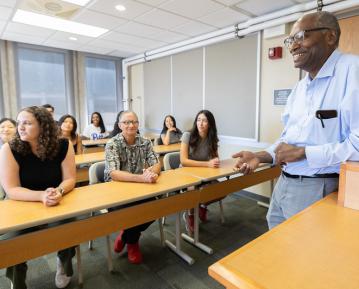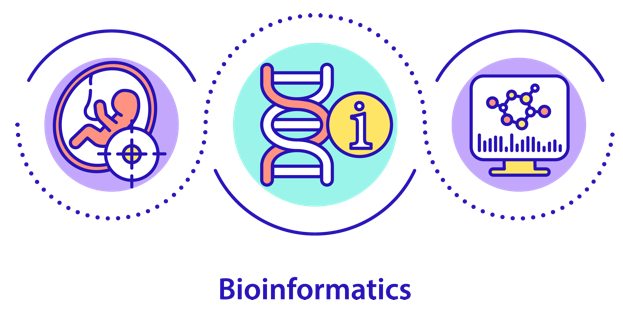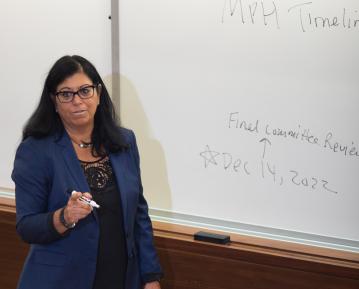Not known Details About Bioinformatics Tutor
Not known Details About Bioinformatics Tutor
Blog Article
What Does Bioinformatics Tutor Do?
Table of ContentsBioinformatics Tutor Can Be Fun For EveryoneThe Greatest Guide To Bioinformatics TutorWhat Does Bioinformatics Tutor Do?The Single Strategy To Use For Bioinformatics TutorSome Known Incorrect Statements About Bioinformatics Tutor
Of the total amount participants included in the training, 80% were pupils from public college institutions, while the continuing to be 20% originated from personal establishments. To receive a certificate of participation, students were required to attend at the very least 90% of the overall training hours. As a result of this demand, an outstanding 95% of the participants successfully acquired their certifications, having not just satisfied the minimum attendance standards however also completed all assigned tasks throughout the training.
During the height of the COVID-19 pandemic, specifically in between June and August 2020, the task team was charged with organizing specialized training in bioinformatics. This training was especially aimed at trainees from the research study group Core for Research study in Applied Computer at the Federal University of Pará (UFRA) The adaptation to remote learning platforms due to the pandemic created a possibility to check out new training methods and electronic tools that enhanced both reach and performance.
To reply to the expanding demand in the computing and life sciences fields, a sophisticated course was presented in 2020 entitled Introduction to Device Understanding. This program was created to offer an accessible yet detailed review of Expert system techniques, particularly as applied in bioinformatics. The program was accomplished over three months, from October to December 2020, and was provided totally online via the Google Meet platform. This virtual style made it possible for participation from trainees across Brazil, numerous of whom could not have had the chance to attend in-person sessions.
See This Report on Bioinformatics Tutor
Around 50% of the overall training hours were committed to sensible tasks where pupils developed intelligent models and applications in an array of scientific domain names, including genes, molecular biology, and ecological data evaluation. These platforms enabled students to involve in real-time information adjustment, model training, and formula testing.
The program attracted 80 individuals in overall. Sixty of them were affiliated with numerous college establishments in the state of Pará, while the continuing to be twenty originated from organizations situated in 5 various other Brazilian states. This broad geographical representation highlighted the nationwide passion in bioinformatics and the expanding demand for specialized abilities in this field. By introducing Expert system in a relevant and useful context, the effort served to link the space in between theory and real-world application, offering pupils with a strong foundation for future research or employment in the field.
The training effort formed component of a more comprehensive scholastic outreach effort recognized as the Bioinformatics when traveling project. This project has, throughout the years, introduced loads of pupils to the world of bioinformatics and computational biology. The events held under this umbrella campaign have taken location throughout numerous regions and years, as summed up in Table 1 (List of events, locations, years, and total numbers of students and trainers)
Numerous of these groups, initially brought together by their engagement in training occasions, have actually considering that gone on to create independent scientific study in collaboration with local academic establishments. The training not only fostered clinical thinking within the context of bioinformatics but also triggered collective relationships that prolonged past the training setting.
The smart Trick of Bioinformatics Tutor That Nobody is Talking About
The job browse around this site itself was conceived and organized by megabytes and RR, that managed the planning and application of each step. Lectures were supplied by a multidisciplinary group being composed of MB, FA, EF, KP, JS, DM, SN, LP, LG, IH, rr, and air conditioner. The exact same team, omitting IH and RR, additionally served as tutors for the functional training components. Financing for the project was provided with the give 88887.200562/ 2018-00 from CAPES. The authors expand their appreciation to everybody who added to the realization of this project, whether directly or indirectly, since check over here its inception.
The Federal University of Pará's Workplace of Research study (PROPESP/UFPA) also supplied financial backing, especially for the manufacturing of the last manuscript. The writers state no commercial or financial disputes of passion that could have influenced the research study. All interpretations and opinions shared in this write-up are exclusively those of the writers and do not necessarily mirror those of their respective institutions, the author, editors, or customers included in the publication procedure.

Bioinformatics Tutor for Beginners
From a pedagogical viewpoint, the training strategy made use of in the training was deliberately interactive. Courses were performed in a manner that urged pupil participation and discussion, exceeding rote memorization to check out how ideas are developed, applied in life, and checked in academic settings. The educational ideology concentrated on supporting both solid and struggling trainees, providing personalized support, and building confidence via sustained mentorship and persistence.

Each group, including around 36 participants, was sustained by 3 advisors-- most of whom were postdoctoral researchers with specialized knowledge. These coaches not just aided design the group jobs but additionally promoted their implementation, ensuring that each research inquiry was both pertinent and properly tough. The objective was to give a biologically site sensible context that individuals could discover with open-ended objectives and accessibility to curated datasets.
For added understandings into the approach and end results of this project-based learning technique, viewers are guided to S1 Text, which includes comprehensive descriptions of the instructional structure, analysis approaches, and task themes made use of in the training sessions.
The smart Trick of Bioinformatics Tutor That Nobody is Talking About
Of the total amount individuals involved in the training, 80% were pupils from public higher education and learning organizations, while the continuing to be 20% came from personal establishments. To qualify for a certificate of participation, students were required to go to at least 90% of the complete training hours. Especially, beyond the students that enrolled in the training sessions, seven skilled trainers took part in providing the courses, while three devoted research study professors worked with the overall training process. Approximately 50% of the overall training hours were committed to sensible activities where trainees built smart versions and applications in a range of clinical domain names, including genetics, molecular biology, and ecological data evaluation. The training not just cultivated clinical thinking within the context of bioinformatics but also triggered collective partnerships that prolonged past the training setting.
Report this page